The Age When Collagen Production Stops
- By Yonboon Team
- March-21-2024
However, the natural collagen levels in your body start to decrease with aging. Well, everyone has to deal with skin aging sooner or later.
You can have smooth, hydrated and wrinkle-free skin for a lot longer by consuming collagen-rich supplements to maintain and increase the amount of collagen in your body.
Let’s discuss at what age collagen production in your body starts to decrease.
First Things First, Collagen and Its Role in the Body
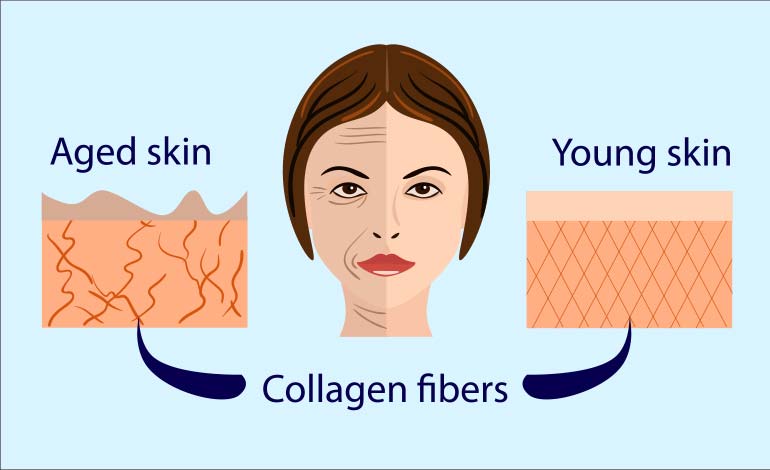
Amino acids are the primary building blocks for the production of collagen or any other protein. Consuming foods high in protein, such as beans, meat, dairy products, provide you with essential and non-essential amino acids.
After that, the amino acids are used by your body to synthesize collagen. Vitamin C, copper, and zinc are among the important vitamins and minerals your body employs in collagen production.
These nutrients are found in a well-balanced diet. Naturally, meals include a lot of them for you to consume.
Vitamin C can be found in citrus fruits, broccoli, tomatoes and green vegetables. Good sources of minerals include beans, seafood, meat, grains and nuts.
It connects the long collagen strands together like a sort of "glue". Since the body cannot synthesize vitamin C, it is crucial to obtain it from diet.
Collagen is responsible for maintaining skin hydration, moisture and plumpness. It also supports muscle and joint health, strong nails and lustrous hair.
But as you get older, your body might not be able to produce or absorb nutrients as effectively.
You might need to balance your diet with oral collagen supplements to ensure that your body’s natural collagen levels are maintained.
Read also: How Much Collagen Should I Take Daily?
The Science of Skin Aging and Collagen Production
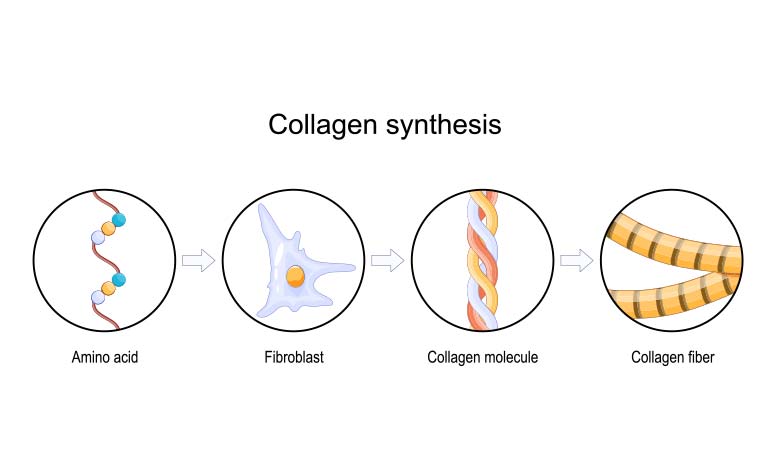
Reduced skin elasticity is a sign of decreased collagen production in your body, this raises your chances of having sagging and drooping skin.
Collagen makes up 75 percent of the weight of the skin and is composed of long fibers that are oriented parallel to one another.
Collagen is essential for maintaining the structure of the skin as well as for skin renewal and regeneration.
Apart from ageing, insufficient food intake is the main cause of low collagen levels in adults. If your body lacks the nutrients to digest amino acids and other essential components, it cannot produce collagen naturally.
Key Ages for Collagen Production Changes
Age related skin changes are natural. The suppleness of your skin can decrease by as much as 1% to 2% after the age of twenty. By the age of 35, most people will observe a noticeable change in skin elasticity.Our collagen levels significantly decrease in the 40s, which causes the collagen and elastin fibers to break and lose their elasticity.
Then, the size of our sebaceous glands (which secrete sebum) decreases in our 50s, causing the skin to become dry and more prone to bruises.
Menopause also lowers estrogen levels in women, which results in two toned and dry skin texture.
Read also: Intermittent Fasting and Collagen Production
Signs of Collagen Loss: Effects of Reduced Collagen on Health and Appearance
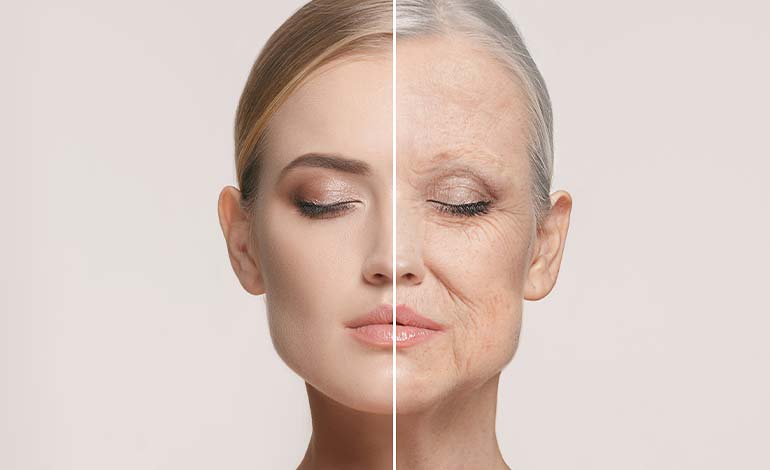
Well, the amount of collagen in your body cannot be measured by a blood test or any other method. But some researchers found a way to quantify it using a chemical assay in human cells.
There are techniques to detect whether your body is low on collagen or other nutrients. We know that our bodies naturally produce less collagen as we get older.
We begin to get less energetic and slow as we age—particularly in our late 20s or early 30s. This results in a number of body conditions that we typically accept as a natural part of aging. Joint stiffness and wrinkles from elasticity loss are common symptoms of collagen loss.
Besides, there is a clear correlation between gut health and collagen, with reduced levels of the protein leading to digestive issues and ulcers.
So How to Support Collagen Production as You Age?
The best way to get nutrients is to consume fresh, organic food. It’s what your body naturally absorbs and processes. But, second best, according to researchers, are collagen supplements.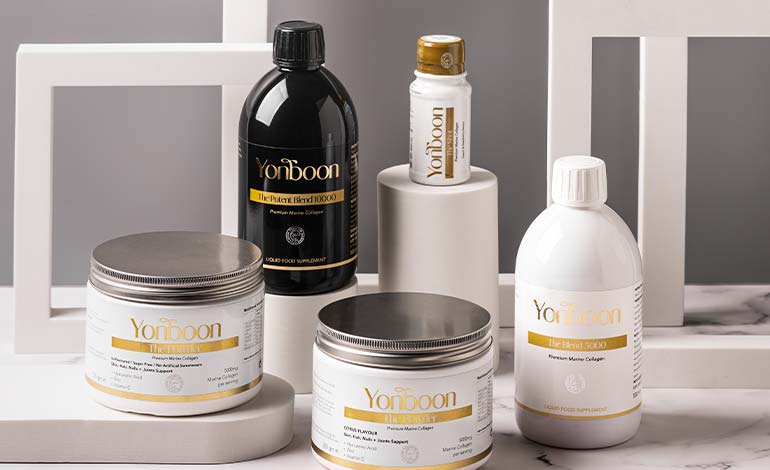
You can choose collagen powder, collagen shots, or blends for balancing the collagen levels in your body. The powdered form of hydrolyzed marine collagen, a.k.a collagen peptides, often has no taste and mixes well into drinks, soups, smoothies, and yes, morning coffee.
Maintaining and increasing collagen levels in your body is good for your general health as well as your overall appeal.
The key to regaining moisturized skin, better joint health, strong nails and a youthful appearance is adding collagen supplements to your routine.
Our premium marine collagen can help your body replenish some of the collagen it has lost over time—resulting in long-lasting benefits such as plump skin and thick hair.
Read also: Is Biotin the Same as Collagen?
FAQs
At what age do you stop producing collagen?
As we get older, our bodies naturally produce less collagen; this usually happens in our mid-20s. It becomes visibly slower by your 30s, and the decrease in levels gets worse with age. Although your body will always produce collagen, the rate at which it does so will eventually slow down.You may, however, continue to promote collagen production with the right care, including a balanced diet, taking regular collagen supplements, following a skincare regimen, and lifestyle changes.
Can you produce collagen after 50?
By the time we are 50, we have considerably less collagen in our bodies. But collagen can still be produced after the age of 50! Collagen production may be supported, and good-looking skin can be maintained by eating a balanced diet, drinking lots of water, consuming marine collagen supplements and utilizing collagen-boosted skincare products.What age is collagen highest?
Collagen levels are usually at their peak in your youth, specifically in the late teens to early twenties. Due to the increased production of collagen, your skin is firm, plump and resilient during this time. But as you get older, your skin’s natural collagen production decreases, which causes changes to its elasticity and firmness. Maintaining collagen levels as you age can be facilitated by taking good care of your skin and general health.Can you regain lost collagen?
Although collagen loss is irreversible, there are strategies to enhance its synthesis and prevent further loss. A balanced diet full of nutrients that increase collagen, frequent exercise, and regular intake of oral collagen supplements can all contribute to a healthy lifestyle.Read also: The Benefits of Taking Collagen While Fasting
Final Word
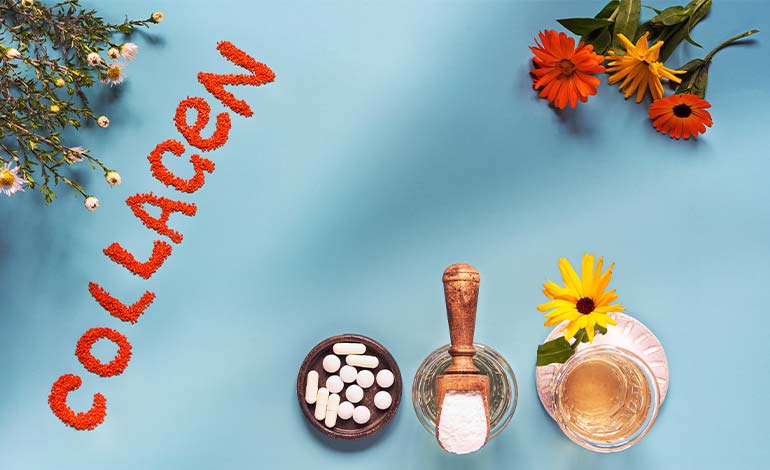
There are numerous benefits of marine collagen including better gut health, hydrated skin, strong nails and thick hair, muscle and joint support, etc.
It is important to note that the benefits are exclusive to regular, consistent use of collagen supplements.
Yonboon marine collagen is the solution you need to get your skin back to its most moisturized, flexible and wrinkle-free state since it helps produce collagen in your body.
Our collagen supplements replenish all that your body has lost with equally potent marine collagen to give you a look you will love!
The benefits may subside if you stop giving your body collagen to boost production. Just make sure it becomes as habitual as your morning coffee or tea!





